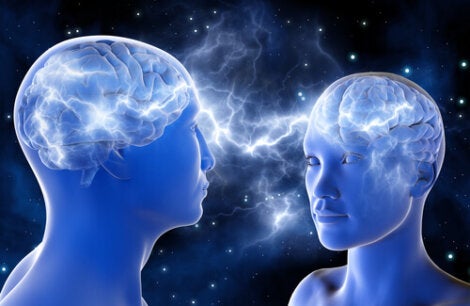What Does it Mean to Truly Understand Someone?


Written and verified by the psychologist Valeria Sabater
Truly understanding other people is the foundation of empathy. Authentic respect is only possible when you make an effort to connect with another person and understand their life, needs, and emotions. In fact, authentic respect allows you to get along with other people. If you understand and empathize with someone else, you also feel that that person deserves consideration and appreciation.
Think about it for a minute. Imagine a world where humans acted as if they were living in an anthill. Every person has a purpose, and every member of the community does their job without aspirations or other motivations. No one worries about anyone else. Mutual understanding is non-existent. As a result, empathy is also non-existent, as well as all the emotions that encourage attention, care, friendship, and altruism.
Without these processes, humanity as we know it doesn’t exist. Yes, conflict and adversity are also human conditions. However, no mental and emotional process is as important for getting along with each other as knowing how to understand. Ironically, this is also one of the most difficult things for us to do.
If you truly understand another person, you do it in a very concrete way, willingly and free of judgment. Today, we’ll delve deeper into what it means to be an understanding person.

Knowing how to understand others
Feeling misunderstood is very frustrating. You probably started to experience this disconcerting feeling during your childhood, when your parents, siblings, friends, or teachers didn’t understand what you were going through. When you feel misunderstood, you feel a mix of anger and sadness. In fact, as an adult, those feelings don’t change.
Thus, feeling misunderstood is one of the deepest and most painful emotions. If you’ve experienced it, perhaps you’re much more motivated to be understanding and empathetic. You want to cultivate that skill, even though some people have failed you along the way. However, you have to do it well.
As Johann Wolfgang von Goethe said, “A person hears only what they understand”. People often only connect with those who are easiest to understand and agree with their values, ideas, and thoughts.
On the other hand, understanding someone else takes effort. In fact, it might even involve courage. After all, understanding means that you have to discover, accept, and connect with someone who thinks differently from you.
True understanding
If you want to truly understand other people, it’s important to clarify an important detail. Comprehending isn’t the same as understanding. People often get stuck on comprehension. In other words, they focus on deciphering what the other person is saying. They’re aware of the message and its meaning, but nothing more.
Understanding involves a much deeper process. It isn’t just about comprehending the words someone says. Instead, it’s using empathy to connect with the unique reality of the person standing in front of you. Thus, something you should keep in mind is that this process is incredibly active and complex.
If you want this process to be effective, you have to apply what psychologists call “theory of mind”. Theory of mind is the ability to infer other people’s mental states (thoughts, fears, desires, and intentions, among others). By doing that, you can understand why they act a certain way and even predict future behaviors.
Once you process all that information, you interpret it so that you can act accordingly. All of these mechanisms come together in the mental act of understanding. However, it’s important for you to avoid neglecting the emotional aspect of understanding.

Understanding before judging
In his books, Daniel Goleman talks a lot about the need to understand other people. However, he points out that that doesn’t just mean you can infer what someone is thinking or feeling. It isn’t enough to simply be aware that a person is feeling scared or sad.
True understanding isn’t possible without a willing and interested heart. Thus, theory of mind is useless for emotional intelligence if, for example, your mind is elsewhere while your partner is talking to you. In addition to that will and active feeling of wanting to open up to the other person and understand what they say, there are other important factors:
- Active listening. You have to be receptive to other people without having any ulterior motives. Active listening means truly listening, not just waiting for the other person to stop talking so you can say your piece.
- Listening without judging. Knowing how to understand another person means connecting with their reality without judgment, prejudice, or labels.
In conclusion, the process of true understanding is very complex. Nevertheless, we’re all able to put it into practice. Where there’s a will, there’s a way.
Truly understanding other people is the foundation of empathy. Authentic respect is only possible when you make an effort to connect with another person and understand their life, needs, and emotions. In fact, authentic respect allows you to get along with other people. If you understand and empathize with someone else, you also feel that that person deserves consideration and appreciation.
Think about it for a minute. Imagine a world where humans acted as if they were living in an anthill. Every person has a purpose, and every member of the community does their job without aspirations or other motivations. No one worries about anyone else. Mutual understanding is non-existent. As a result, empathy is also non-existent, as well as all the emotions that encourage attention, care, friendship, and altruism.
Without these processes, humanity as we know it doesn’t exist. Yes, conflict and adversity are also human conditions. However, no mental and emotional process is as important for getting along with each other as knowing how to understand. Ironically, this is also one of the most difficult things for us to do.
If you truly understand another person, you do it in a very concrete way, willingly and free of judgment. Today, we’ll delve deeper into what it means to be an understanding person.

Knowing how to understand others
Feeling misunderstood is very frustrating. You probably started to experience this disconcerting feeling during your childhood, when your parents, siblings, friends, or teachers didn’t understand what you were going through. When you feel misunderstood, you feel a mix of anger and sadness. In fact, as an adult, those feelings don’t change.
Thus, feeling misunderstood is one of the deepest and most painful emotions. If you’ve experienced it, perhaps you’re much more motivated to be understanding and empathetic. You want to cultivate that skill, even though some people have failed you along the way. However, you have to do it well.
As Johann Wolfgang von Goethe said, “A person hears only what they understand”. People often only connect with those who are easiest to understand and agree with their values, ideas, and thoughts.
On the other hand, understanding someone else takes effort. In fact, it might even involve courage. After all, understanding means that you have to discover, accept, and connect with someone who thinks differently from you.
True understanding
If you want to truly understand other people, it’s important to clarify an important detail. Comprehending isn’t the same as understanding. People often get stuck on comprehension. In other words, they focus on deciphering what the other person is saying. They’re aware of the message and its meaning, but nothing more.
Understanding involves a much deeper process. It isn’t just about comprehending the words someone says. Instead, it’s using empathy to connect with the unique reality of the person standing in front of you. Thus, something you should keep in mind is that this process is incredibly active and complex.
If you want this process to be effective, you have to apply what psychologists call “theory of mind”. Theory of mind is the ability to infer other people’s mental states (thoughts, fears, desires, and intentions, among others). By doing that, you can understand why they act a certain way and even predict future behaviors.
Once you process all that information, you interpret it so that you can act accordingly. All of these mechanisms come together in the mental act of understanding. However, it’s important for you to avoid neglecting the emotional aspect of understanding.

Understanding before judging
In his books, Daniel Goleman talks a lot about the need to understand other people. However, he points out that that doesn’t just mean you can infer what someone is thinking or feeling. It isn’t enough to simply be aware that a person is feeling scared or sad.
True understanding isn’t possible without a willing and interested heart. Thus, theory of mind is useless for emotional intelligence if, for example, your mind is elsewhere while your partner is talking to you. In addition to that will and active feeling of wanting to open up to the other person and understand what they say, there are other important factors:
- Active listening. You have to be receptive to other people without having any ulterior motives. Active listening means truly listening, not just waiting for the other person to stop talking so you can say your piece.
- Listening without judging. Knowing how to understand another person means connecting with their reality without judgment, prejudice, or labels.
In conclusion, the process of true understanding is very complex. Nevertheless, we’re all able to put it into practice. Where there’s a will, there’s a way.
This text is provided for informational purposes only and does not replace consultation with a professional. If in doubt, consult your specialist.







